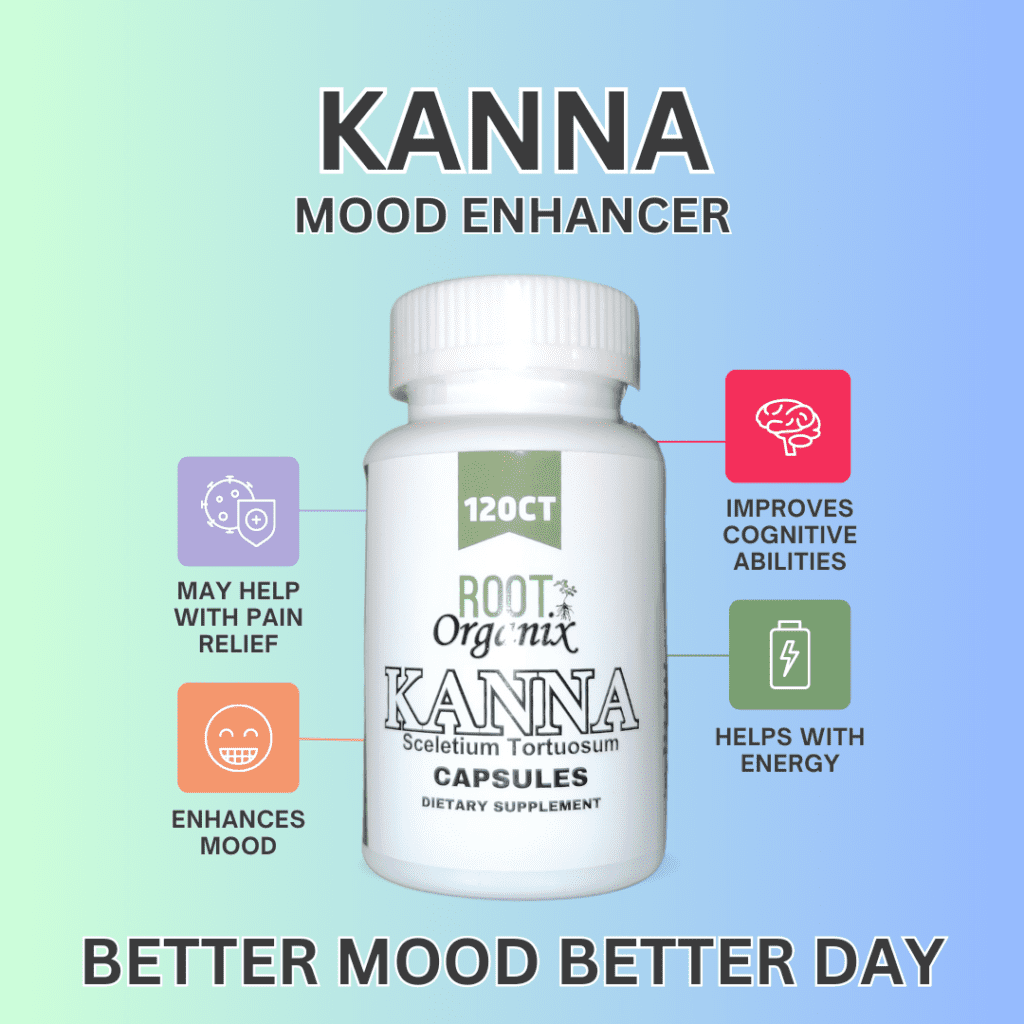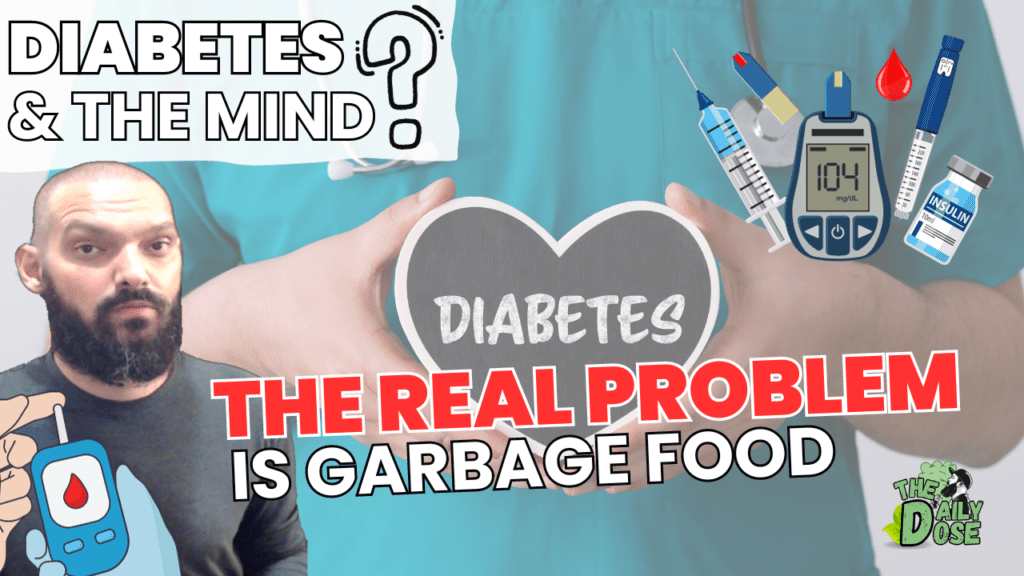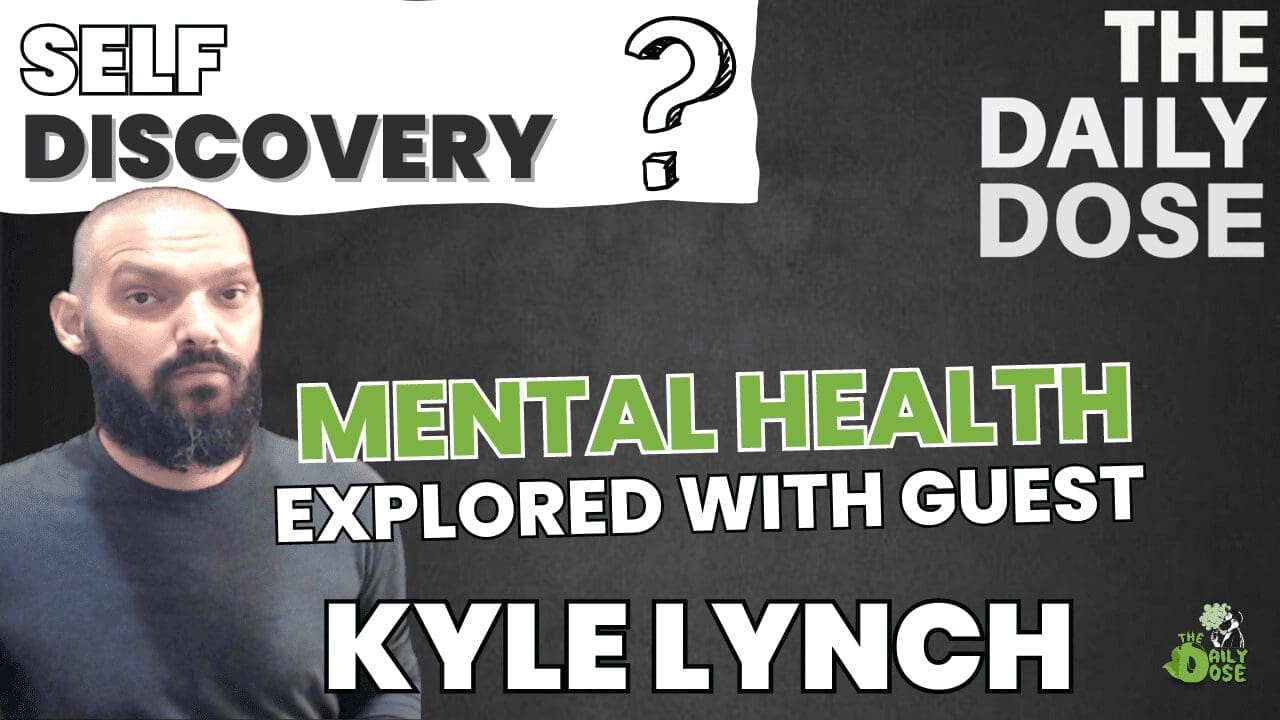To listen to the full episode check it out here: The Daily Dose Podcast
Diabetes And Mental Health What To Know
Introduction
Navigating the intricacies of diabetes involves more than managing blood sugar levels. This comprehensive exploration delves into the often-overlooked connection between diabetes and mental health. From personal reflections on living with Type 1 diabetes to surveying the awareness landscape through the “Diabetes State of Mind,” we unravel the complexities of emotional distress in the realm of diabetes care.
Personal Reflection: Living with Type 1 Diabetes
The Inescapable Presence of Diabetes
Type 1 diabetes is not just a medical condition; it’s a constant companion shaping daily decisions. This section delves into the inescapable presence of diabetes and how it influences every aspect of life.
Type 1 diabetes exerts a pervasive influence on the daily lives of those affected, shaping every facet of their existence. From the moment of waking to the final moments before sleep, individuals with Type 1 diabetes grapple with the continuous demands imposed by the condition.
The unrelenting nature of diabetes transforms routine decisions into pivotal choices, with each meal, medication, and exercise regimen directly impacting glucose control. This relentless presence infiltrates every aspect of daily life, creating a constant backdrop that necessitates unwavering attention and adaptability.
The inherent unpredictability of diabetes introduces an additional layer of complexity, making each day a dynamic challenge. While diabetes does not define the entirety of an individual, it undeniably becomes an omnipresent companion, demanding resilience and a proactive approach to navigate the intricacies of managing this chronic condition.
Professional Insights and Observations
Drawing on personal experiences, this section explores how living with Type 1 diabetes has heightened awareness of mental well-being cues in patients, providing unique perspectives in both personal and professional contexts.
The fusion of personal empathy with clinical knowledge creates a distinctive vantage point, enhancing the ability to recognize and address the intricate interplay between physical and emotional well-being in individuals navigating the complexities of diabetes management.

Surveying the Landscape: “Diabetes State of Mind”
The Awareness Gap
Despite a wealth of published data, a survey named “Diabetes State of Mind” uncovers a significant awareness gap. The unexpected revelation prompts a deeper examination of the link between diabetes and mental health.
Uncovering the Surprising Link
With approximately 51% of respondents expressing surprise at the connection between diabetes and mental health, this section analyzes the implications of this awareness void and its potential impact on diabetes care.
The potential impact of this void extends to the realm of healthcare, where addressing emotional distress and mental health challenges is pivotal for comprehensive diabetes care. Recognizing this gap serves as a catalyst for initiating informed conversations, fostering awareness, and ultimately facilitating a more integrated approach that considers both the physical and emotional dimensions of diabetes care.
Addressing Mental Health in Diabetes Care
Depression’s Grip on Diabetes Control
Explore how depression, prevalent among those with diabetes, can negatively influence diabetes control and escalate the risk of complications. The reciprocal relationship between mental well-being and diabetes management comes to the forefront.
Unveiling Emotional Distress
Delving into emotional distress symptoms, we examine how undetected cases contribute to the complexity of diabetes care and underscore the need for a comprehensive approach to mental health in diabetes management.
The subtle yet profound impact of untreated emotional distress on self-care and glucose control unveils a critical aspect often overlooked in traditional approaches to diabetes management. Underscoring the need for a comprehensive paradigm, this exploration emphasizes that mental health is an inseparable component of effective diabetes care.
By addressing emotional distress and integrating mental well-being into the fabric of diabetes management, a more holistic approach emerges, offering a nuanced perspective that aims not only to regulate blood glucose levels but also to enhance overall emotional well-being.

Strategies for Greater Awareness
Understanding the Stress-Diabetes Nexus
Unravel the stress-diabetes nexus, where the stress of daily diabetes management intensifies fluctuations in blood sugar, complicating glucose control. Insights into the intricate relationship between stress and diabetes provide a foundation for awareness.
Navigating the Roulette of Emotions
Visualizing the emotional roulette experienced by individuals with diabetes, we explore feelings of frustration, guilt, shame, and burnout. Recognizing and understanding these emotions is crucial for holistic diabetes care.
Fostering Open Dialogues
Highlighting the need for open conversations, it’s critical to emphasize the importance of recognizing and discussing the emotional challenges associated with diabetes, paving the way for improved emotional well-being and diabetes control.
Checkout this quick video from Fox discussing how people are turning to TikTok influencers for advice.
Creating a Comfortable Environment for Communication
Barriers to Seeking Help
Examine the barriers that hinder individuals with diabetes from seeking mental health support, including affordability, embarrassment, judgment, and fear of stigma. Addressing these barriers is essential for fostering a supportive environment.
Triumphing Over Uncontrollable Factors
Drawing parallels between the uncontrollable aspects of life, such as a diabetes diagnosis, and the controllable reactions to them, we explore the role of support from families, doctors, and employers in empowering individuals affected by diabetes.

The Role of Safe Spaces in Mental Health
Proactivity through Safe Spaces
Discover the impact of safe spaces in encouraging proactive communication about feelings and needs. Creating environments where individuals feel supported in expressing their mental health challenges is pivotal for overall well-being.
Holistic Approaches to Diabetes Care
Explore how healthcare providers attuned to mental health cues can offer a more holistic approach to treating diabetes. Integrating mental well-being into diabetes care extends beyond physical monitoring to encompass emotional support.

The Scale of the Challenge: Diabetes and Mental Health Crisis
Growing Numbers and Rising Concerns
As diabetes affects 38 million individuals in the U.S., coupled with a rising crisis in mental health, especially among adolescents and teens, this section sheds light on the scale of the challenge and the urgent need for support.
As diabetes intertwines with a growing crisis in mental health, particularly among America’s adolescents and teens, the scale of this health challenge becomes increasingly apparent. The imperative for support extends beyond traditional medical narratives, demanding a nuanced understanding of the reciprocal relationship between diabetes and mental well-being.
There needs to be actionable steps to address the multifaceted nature of the diabetes crisis, emphasizing the interconnectedness of physical and mental dimensions and the critical role that effective support systems play in fostering well-being.
Empowering Steps Towards Support
Identify actionable steps that can be taken to address the mental health crisis intertwined with diabetes. Acknowledging the interconnected nature of these challenges is crucial for creating effective support systems.

Conclusion: A Holistic Approach to Well-Being
Embracing Mental Well-Being in Diabetes Care
Integration of mental well-being into diabetes care and recognizing the reciprocal relationship between diabetes and mental health is pivotal for a holistic and effective approach.
Moving Beyond the Conventional Diabetes Narrative
Challenging conventional narratives, this subsection emphasizes the need to move beyond a singular focus on blood glucose levels and physical complications. A call to embrace a more nuanced and comprehensive perspective on diabetes care concludes the exploration.
FAQs
Is depression common among individuals with diabetes?
How does stress impact diabetes control?
What are the barriers to seeking mental health help for individuals with diabetes?
Why is creating a comfortable environment for communication important?
How can safe spaces contribute to mental well-being in diabetes care?
What steps can be taken to address the mental health crisis intertwined with diabetes?
Related Articles:
- St. John’s Wort Benefits And Risks Explained
- Understanding Sleep & Insomnia Dr. Sykes
- Healthy Eating What To Know
- Functional Medicine
#diabetes #diabetesandmentalhealth #mentalhealth #struggleofdiabetes #healthandwellness #herbalsupplements #alternativehealing #naturalremedies #thedailydosepodcast
Meet The Author





